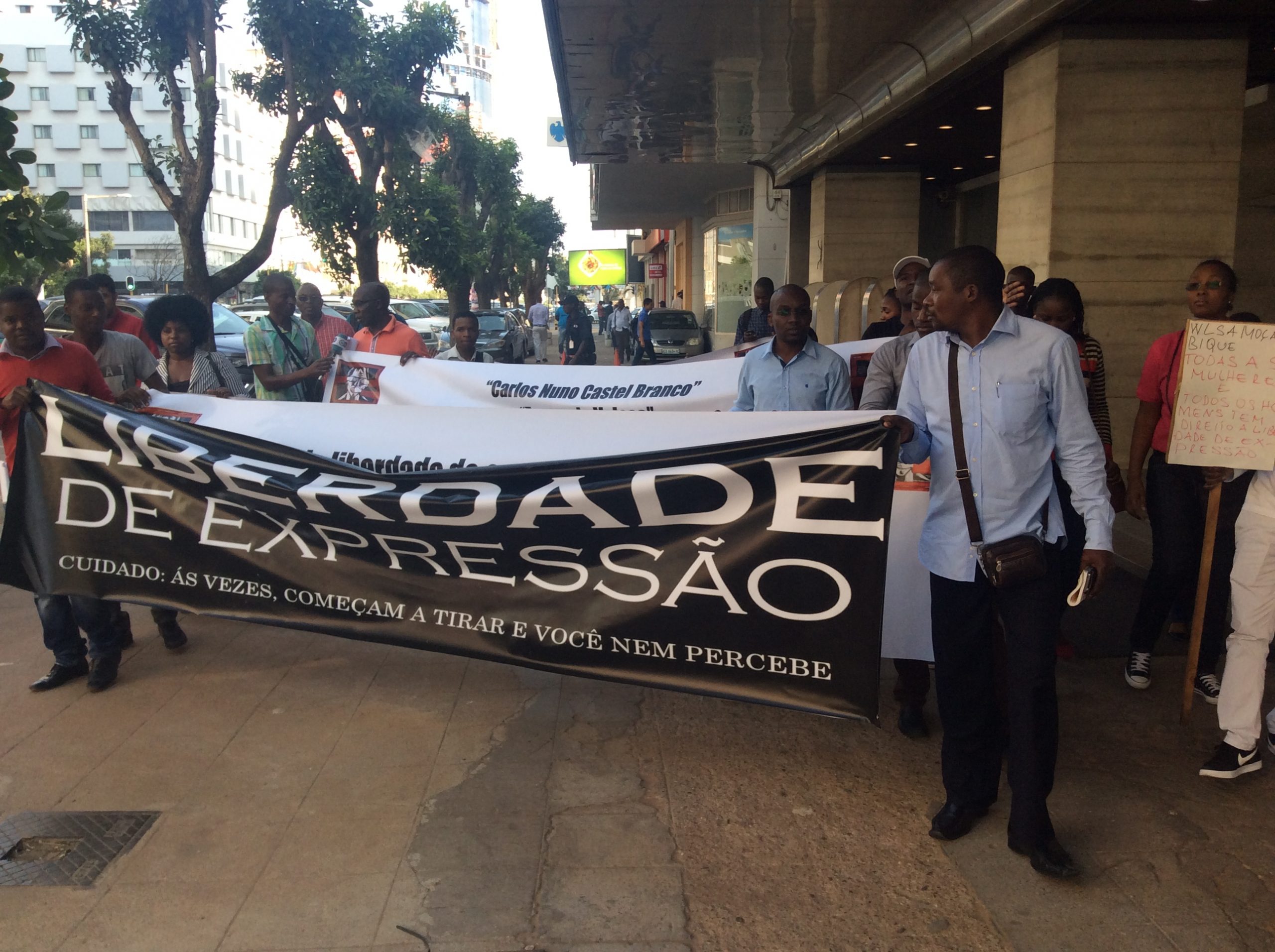It all roots back to the period between 2011 and 2013. The country saw material and life losses, and the roads leading to north, centre and south were compromised. This was all because of political instability involving the interests of political parties and the government and lead to country wide public debate ever since.In November 2013 Carlos Nuno Castel Branco, an experienced economist and associate researcher of different institutions in Mozambique and abroad, wrote an open letter and posted it on Facebook – saying that Armando Guebuza, the president in power at that time, had things out of control and his governance style was leading the country to a chaos.Castel Branco constructed his opinion based on Guebuza’s speeches in the national media, where he was confidently saying there is no need for change within the security forces, even though the country suffers from organized crime such as kidnappings and assassinations. The president blamed media of being responsible for the climate of instability. He also categorically described people who criticised him as anti-patriots and denied having links with private business favouring capitalism. He even blamed the people of being poor because of their mentality and culture. For these reasons Castel Branco compared the president’s governance methods to those of major fascists that the world history has met.***The Public Attorney decided to take the case to court pointing that regardless of the context, Castel Branco was directly affecting the president’s personal integrity and honour. The newspaper editors were accused of publishing an opinion that compromises national security – by doing so they abused the freedom of press. The Public Attorney recognised that the constitution allows citizens to participate in the political life of the country, expressing their opinion the way they want, but highlighted that these opinions should not affect the government high officials and especially the president of the country, or national security matters.The Public Attorney mentioned that Castel Branco used his personal knowledge about the president to attack him with personal matters. Nonetheless, during the court hearing the Public Attorney did not bring any witnesses or evidences of such offenses neither any person from the national security department including the namely offended former Mr. President.***JOINT, one of the Kepa partners as the civil society network in Mozambique, IREX and other civil society entities, some embassies and media experts did not remain silent.They came together campaigning against the violation of such constitutional rights. They pitied the reasoning behind of the case: it seemed that the allies of former president want to silence criticism for political comfort. They also argued that the constitution should not be used only to protect the rights of high level officials, and on the other hand pretend to run a democratic country.A democratic country is a country where the people are free to express their feelings and opinions about the governance whether they are happy or not about it. And when political circumstances deteriorate the obvious target of criticism is the state chief in command – the president. One key note from the civil society and media experts is that one opinion is not a fact, so it shouldn’t be a reason for prosecution.***However, a law of amnesty for crimes committed against national security was approved – and the time frame of the letter was included in it. Nonetheless, there was no need for the lawyers to claim for an amnesty because the case was not about a crime committed but about one’s chance to upguard the people’s freedom of expression and freedom of the press, that was about to be forcibly buried again.Before the court hearings, some people feared that there is a possibility that the Public Attorney succeeds on the case due to independency of Mozambican courts.***On September 16th extraordinarily, the judge made his decision after the hearing. He in fact remarked that Castel Branco and Fernando Mbanze1 are to be set free.The law gives citizens this privilege of public opinion and regardless of the tone. For any of the defamation offense crimes, it is important to observe that the conflicts between the president’s honour and people’s permanent fear to give an opinion the judge is definitely to protect the people’s interest.The public attorney must have not ignored the context the letter was written and published in, the criminal record and background of the author. By nature the public representatives, like the president must be aware that they are objects of public and critic opinion.From this case, we learned that politicians do not like critical opinion. But they like good reputation. However, if one is expected to vote for politicians to manage public resources, then it is also this politician’s obligation to hold their governance accountable.If political instability is caused by jeopardising people’s lives and dreams, at some point it is crucial to speak up and fight the oppressors before you join them and turn to be an oppressor too, as we have learned from Castel Branco speech during the court hearing.

Choosing to fight the oppressor – a quest for freedom of speech
A Mozambican academic was charged for the crime against state security, slender and defamation for expressing his criticism on the former president. Two journalists were charged for abusing the freedom of press having published the opinion as they thought it was of public interest. A case taken up by Mozambican court in September.
Teksti: Leopoldino Jeronimo